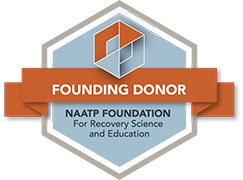Continuing to Build Your Spirituality in Long-Term Recovery: 12-Step Programs
12-Step programs have helped thousands of people strengthen their recovery over time, and much of it is because of their focus on spirituality. Those in active addiction often find a void that they’re trying to fill: a sense of loneliness, anger, discomfort, pain, or something else that is causing them despair. It is often through use of substances that they attempt to fill that void – but it never works, because that void can only be filled with true soul work. The Mental Health Foundation, a UK-based organization that aims to pioneer change through information backed up by research, explains that spirituality can mean something different for everyone. They denote that spirituality could mean any of the following:
- Religion or faith
- Belief in a higher power or some kind of force greater than the individual
- Purpose or direction in life
- A way of understanding the world
- A feeling of being connected to oneself, the world, and others
- A quest for wholeness
- A sense that there is more to life than merely physical objects
- And more
In 2017, a researcher from Harvard Medical School sought to explore the extent of spirituality found in programs like AA. After conducted a thorough literature review, he concluded that these programs were “quasi-religious/spiritual”, meaning that individuals who attend these programs are able to take from them what they need – in ways such as those mentioned above.
As you take a moment to reflect on your own thoughts and beliefs, what does spirituality mean to you?
Spirituality and Long-Term Recovery
A 2017 study published in the journal Psychology of Addictive Behaviors sought to investigate the relationship between spirituality and Alcoholics Anonymous (AA). They found that the principles of AA focus on helping those in recovery gain a sense of spirituality, and this can greatly help those in long-term maintenance gain the most benefit from these types of 12-Step programs. It is also through these spiritual components of 12-Step programs that many people in recovery continue attending even long after formal treatment has ended, as it contributes to their long-term maintenance strategies.
In addition, attendance of 12-Step programs such as AA helps remind those in recovery of their goals – and with abstinence at the forefront of their mind, they’re better able to cope with challenging thoughts, emotions, and life circumstances – even if it’s 16 years down the line. Chapter 36 of a textbook titled Textbook of Substance Abuse Treatment confirmed many years ago that attendance of AA is associated with longer duration of abstinence at the 1-year, 8-year, and 16-year time period. The Surgeon General previously released some key findings that emphasized how promising 12-Step programs have been for those needing substance use interventions – altogether, these programs such as AA truly give those in long-term maintenance a chance to continue working towards their recovery in a safe setting.
How exactly does spirituality fit into this?
Those in long-term recovery may find their sense of spirituality fading over time, especially if they’ve not attended or sought-out any recovery-related activities for a while. Just as we must keep up with exercise in order to maintain our physical health, we have to keep working towards strengthening our spiritual selves so that we continue to live an enriching life.
Avoiding Complacency
Unfortunately, when we become too comfortable in our recovery, we lose sight of our goals and stop pushing ourselves to improve. We may have finally reached a point in our lives when we’re so excited about the progress we’ve made, but then we may stop our efforts because we feel we’ve already gotten to where we wanted – as if there is no longer room to grow. This false belief can send many in long-term recovery back a few steps, and they may find themselves faltering as they try to find that balance again.
Spirituality takes back that inflated sense of self and reminds us that we’re human; that we’re bound to make mistakes, and that we need to trust in something larger than ourselves. Through spirituality, we can continue learning and growing with an entire community supporting us – because that’s what they’re working on, too. As The Fix notes, there are many spiritual activities that we engage in to keep us grounded in recovery:
- Meditation
- Prayer
- Reading spiritual material
- Spending time out in nature
- Exploring and creating artwork
- Engaging in AA service activities
- Volunteering
- And more
By maintaining lifestyle habits that incorporate these spiritually-based activities, we’re taking action to ground ourselves and serve others – 2 areas of emphasis that can make a huge difference in our lives.
Get Back into Spirituality
Fill your heart with love, your mind with patience, and your soul with serenity. Remind yourself of the reasons why you started your journey to begin with – and build up that structure again.
This is the year to change your life from suffering due to the disease of addiction to thriving in the sunlight of the spirit of sobriety. As the world’s first 12-Step treatment center, established in 1939, High Watch Recovery is dedicated to educating patients on 12-Step principles, actions, philosophies, and lifestyles, preparing them to live a happy and healthy sober life after graduating. For information on our continuum of clinical care and our compassionate approach to treatment, call us today: 860.927.3772.








